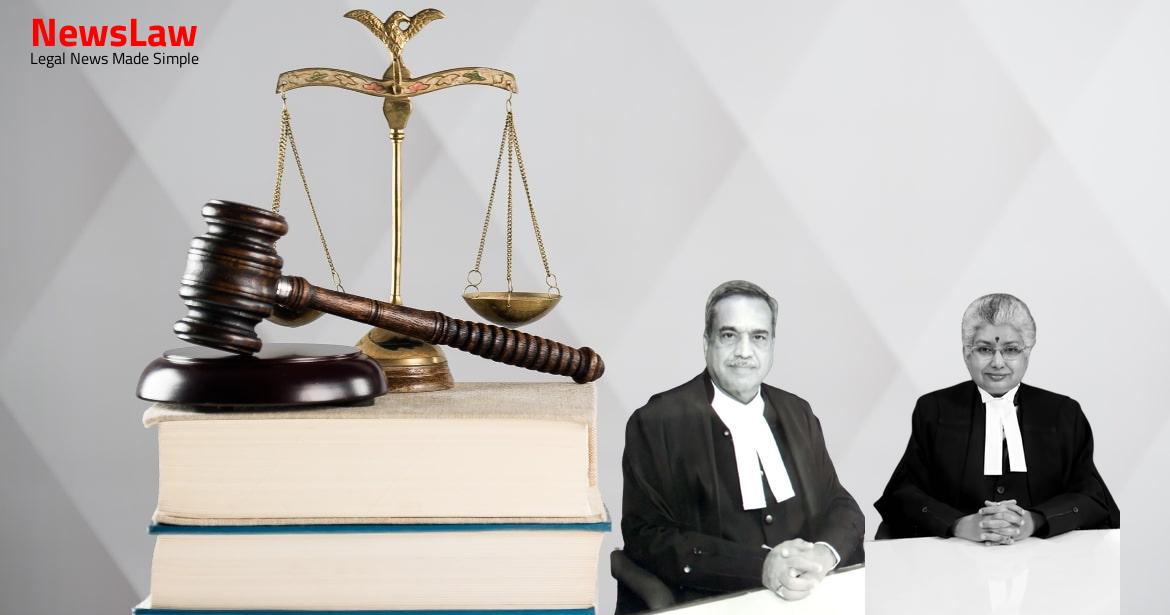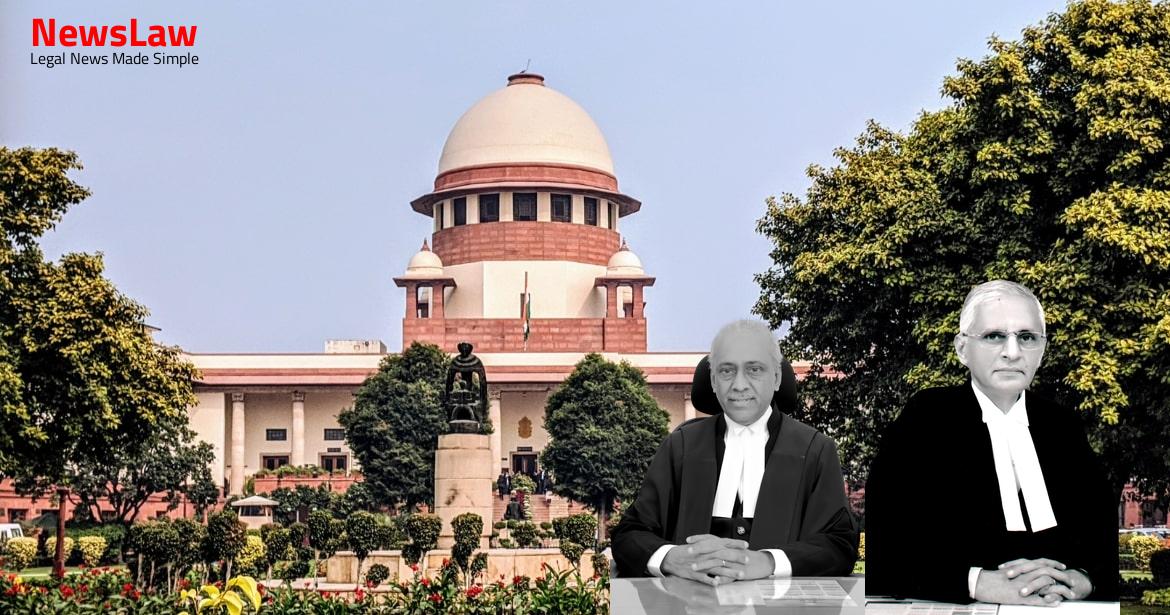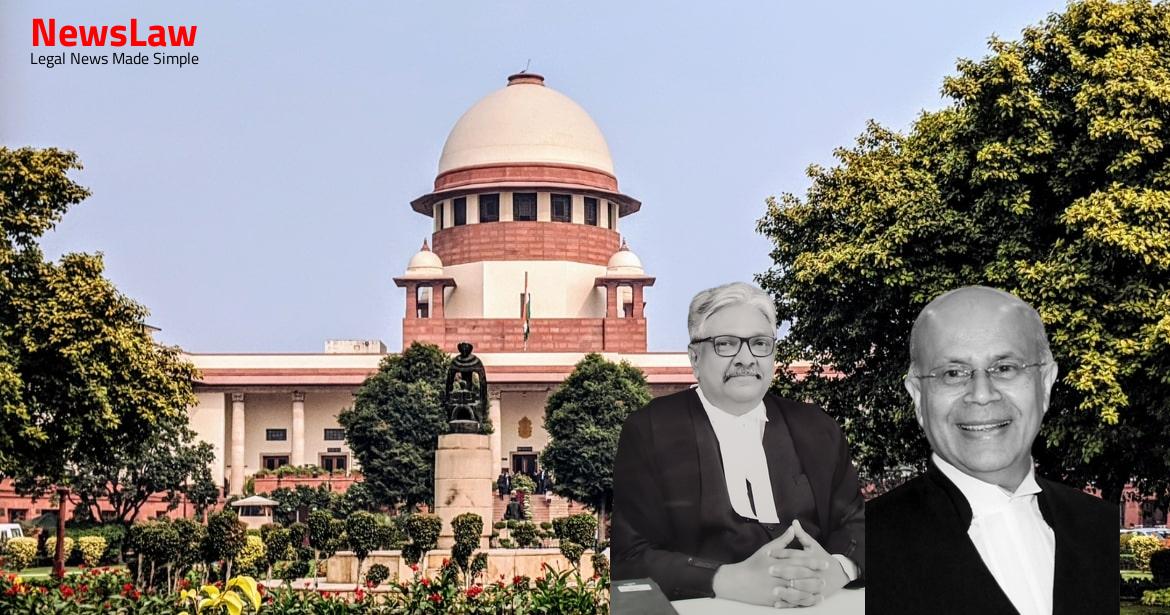Delve into the realm of judicial scrutiny over disciplinary punishment in a recent legal case. The court’s analysis navigates the fine line between upholding penalties and judicial intervention, weighing factors such as the gravity of misconduct and procedural adherence. Join us as we unravel the complexities of this case and the implications for future disciplinary proceedings.
Facts
- The Tribunal partly allowed the original application and modified the punishment to compulsory retirement on sympathetic grounds.
- The delinquent officer had deposited the entire amount involved, causing no loss to the department.
- The High Court dismissed the writ petition by the Union of India and others, confirming the Tribunal’s decision.
- The delinquent officer had nearly 39 years of service and no prior punishments.
- The Tribunal interfered with the punishment imposed by the Disciplinary Authority, changing it to compulsory retirement.
- The department filed a writ petition against the Tribunal’s decision.
- Six charges were framed against the respondent.
- All charges were held proved against the respondent by the Inquiry Officer.
- The respondent admitted to all charges during the preliminary sitting.
- The Inquiry Officer’s report was forwarded to the charged official.
- The Disciplinary Authority imposed the penalty of ‘removal’ from service due to the grave nature of the offences committed.
- A departmental enquiry was initiated against the respondent for fraudulent activities amounting to Rs.16,59,065.
- The departmental appeal against the removal from service was dismissed.
Also Read: Ruling on Circumstantial Evidence in Murder Case
Arguments
- The learned counsel for the petitioner vehemently opposes the present appeal.
- It is argued that procedural requirements were met, and courts usually do not interfere with the punishment imposed on a delinquent employee.
- The length of service, first-time misconduct, and subsequent repayment of the amount are not sufficient reasons to overturn the decision to remove the delinquent officer.
- The seriousness of the proved misconduct justifies the decision to dismiss the officer from service.
- Both the Tribunal and the High Court are accused of showing undue sympathy towards the delinquent officer who committed fraud.
- Citing various court decisions, the Additional Solicitor General argues that the punishment imposed by the Disciplinary Authority should not have been interfered with.
- It is emphasized that the officer admitted to the charges and misconduct only after the fraud was detected.
- The respondent’s counsel argues that the Tribunal’s decision to modify the punishment was based on valid reasons.
- The High Court’s decision to not interfere with the Tribunal’s ruling was deemed appropriate.
- The respondent’s voluntary repayment of the amount, lack of loss to the department, long service record, and upcoming retiral benefits were highlighted as factors justifying the Tribunal’s modification of punishment.
Also Read: Challenging Legal Presumptions in Negotiable Instrument Cases
Analysis
- The Tribunal and the High Court exceeded their jurisdiction in interfering with the punishment imposed by the Disciplinary Authority.
- The gravity of the misconduct, involving defrauding Rs.16,59,065, was not adequately considered by the Tribunal or the High Court.
- Merely completing 39 years of service without prior misconduct or voluntarily depositing defrauded amount does not justify modifying the punishment.
- The reputation and goodwill of the department were tarnished by the delinquent officer’s serious misconduct.
- The employee’s possession of disproportionate assets and the serious nature of fraudulent activities support the original decision of removal.
- No procedural lapses were found in the departmental enquiry process.
- Courts should not interfere with the quantum of punishment when procedural requirements have been met.
- In the case of B.C. Chaturvedi, the High Court interfered with the order of punishment imposed by the Disciplinary Authority.
- They substituted the punishment of dismissal from service with compulsory retirement.
- The High Court’s reasoning included the employee’s 30 years of service, brilliant academic record, and promotions earned during the disciplinary proceedings.
- It is noted that decisions should not be set aside based solely on sympathy or sentiments.
- The impugned judgment and order passed by the High Court and the order passed by the Tribunal changing the punishment from removal to compulsory retirement cannot be upheld.
- Both the Tribunal and the High Court overstepped their jurisdiction by modifying the punishment imposed by the Disciplinary Authority.
- In this case, interference with the quantum of punishment was not justified based on the facts and circumstances.
- The orders substituting the punishment to compulsory retirement need to be quashed and set aside for exceeding jurisdiction.
Also Read: Legal Analysis Critique in High Court’s Quashing Order
Decision
- The present appeal is allowed.
- The impugned judgment and order passed by the High Court dated 30.08.2016 is quashed and set aside.
- The order dated 26.03.2013 passed by the Central Administrative Tribunal in O.A. No 357/2012 is also quashed and set aside.
- O.A. No 357/2012 is dismissed, and the order imposing the punishment of removal is restored.
- No costs are awarded in this case.
Case Title: UNION OF INDIA Vs. M. DURAISAMY (2022 INSC 436)
Case Number: C.A. No.-002665-002665 / 2022



